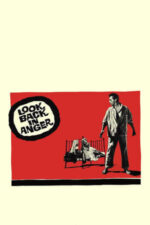Kitchen Sink Realism: Uncovering the Heart of Everyday Struggles in British Cinema
When we talk about kitchen sink realism, we're diving into a specific movement in British cinema that emerged in the late '50s and continued through the '60s. The name itself comes from a famous quote by the director Kenneth Tynan who said, "I want emotional truth, not intellectual wit... I want a play about people who live in a council flat, with their kitchen sink prominently featured."
This movement was born out of a desire to depict the gritty reality of working-class life in Britain, focusing on themes like alienation, struggle, and the ordinary heroes trying to make sense of their world. Films of this era moved away from grand narratives and glamorous settings to portray the raw, unfiltered lives of characters dealing with everyday issues.
Let's consider "Kes," a prime example of kitchen sink realism that tells the story of Billy Casper, a working-class boy living in rural Yorkshire. He's trapped in an environment devoid of love or support, facing constant abuse from his father and taunts at school. But when he discovers an abandoned kestrel falcon, something changes within him - a sense of purpose, a reason to keep going. This film is more than just a tale of survival; it's about finding beauty in the most unexpected places, even amidst the bleakest circumstances.
"The L-Shaped Room," too, offers a poignant depiction of a woman grappling with societal expectations. Jane finds herself pregnant outside marriage at a time when such situations were severely judged. Yet instead of conforming to what society deems appropriate, she moves to London, rents a room in a shabby boarding house, and forges relationships with its quirky inhabitants. Her life takes an unexpected turn when she begins an affair with another boarder, but the looming reality of single motherhood forces her to confront some hard decisions.
"On Falling," adds a global dimension to this British-centric theme. Aurora, a Portuguese migrant worker, navigates through the labyrinthine corridors of a Scottish distribution center while trying to preserve her cultural identity in a foreign land. Her resilience and determination to belong serve as a reminder that human connections can bridge even the widest gaps.
These films, along with others like "Poor Cow," "The Entertainer," and "Look Back in Anger," form part of Britain's rich cinematic tapestry. They offer powerful insights into the human experience, revealing our shared struggles, dreams, and fears. By peeling back the layers of everyday life, they invite us to reflect on what truly matters: love, hope, resilience, and the indomitable spirit of humanity that shines through, even in times of greatest adversity.
Kitchen sink realism isn't just about showing the grime under our fingernails; it's about revealing the heart beating within us all, pounding against life's challenges with unyielding force. These films remind us that beneath the surface of routine and monotony, there lies a world teeming with raw emotion, profound humanity, and stories waiting to be told.
































